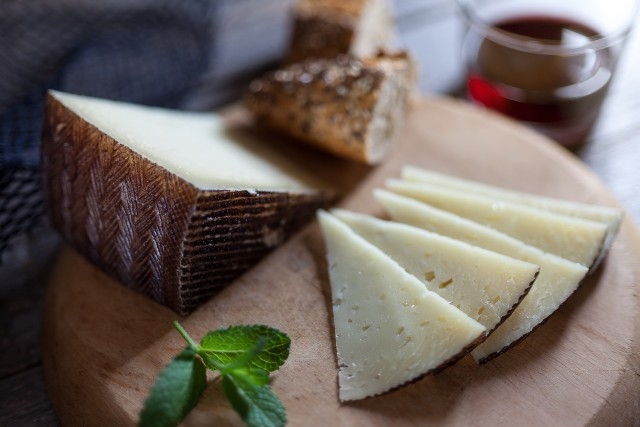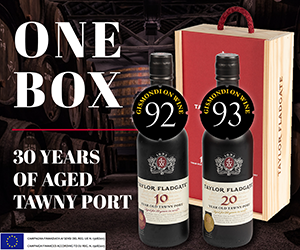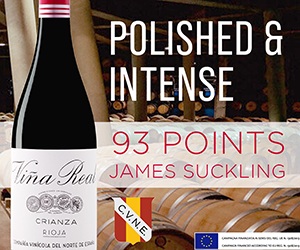There's a commonly held belief in the wine and cheese world that white wines are a better foil for most cheeses.
I tend to agree with that idea, but perhaps it's partly because I prefer white wines.
When I'm pairing, I approach the French way and their idea of terroir, accepting that wines and foods of a specific growing area share some unique qualities and tend to marry well. Considering this idea and looking at the places where cheese is an important agricultural product, the regions are often more famous for their white wines.
An excellent example is Alsace, famous for its variety of unique white wines. The strong cheeses that Alsace is known for are a great complement to the wines. A slightly off-dry Gewürztraminer and a ripe Muster are my favourite pairings. It highlights all the things we love about eating in France. But, sometimes we want cheese with red wine, so what are we to do?
Thankfully, there are a lot of cheeses that work wonderfully with red wines. I suggest asking these questions when searching for a cheese to serve with your next bottle of red.
How tannic is the wine?
The bigger the tannins in your wine, the less well it will pair with soft cheeses. Soft cheeses are always more difficult with red, and if you have a younger wine, stick to firm cheeses with a medium texture thrown in for variety.
Is your wine lighter-bodied or fuller?
Like a pinot noir, a lighter-bodied red will pair very differently than a more extensive wine like a cabernet sauvignon or a shiraz. The lighter wines might work with more delicate sheep cheeses, a medium soft washed rind like Saint -Nectaire, or even some soft cheeses if you pick from a wheel that isn't too ripe.
Where is your wine from?
Is it worth choosing cheese from the same country? Of course, that will only work for some areas, but keeping some thread running through your cheese selection can be fun.
Accompaniments
My one word of caution when trying to find accompaniments for your red wine and cheese fiesta is to keep it simple. There will already be a lot going on, and you don't want to detract from the wine. So, please keep it to a not-too-sweet preserve, perhaps with a savoury note and a simple salted cracker or baguette.
Enjoy whatever bottle of wine you choose for your cheese plate in the future. Drink it in good health!
My Favourites
These are some of my favourites when choosing cheese for a bottle of red (or two) for at least 1 or 2 years.
- Gouda – at least a one- or a two-year-old version like Rembrandt, Beemster XO, Old Amsterdammer, Honeybee Goat Gouda, Cantenaar or Vermeer.
- Cheddar – anything over three years is excellent, and a three or five year aged from Ontario or Quebec is perfect. My favourite UK cheddars are Champagne Cheddar, Black Bomber, White or Red Fox, 1057 Scottish cheddar, or Coastal Cheddar.
- Manchego (pictured) - This classic sheep cheese is an excellent match for many different varietals, regardless of age. I would try an older one with a younger wine and a younger version with a lighter-bodied red.
- Piave Vecchio – a favourite of mine from the north of Italy.
- Parmigiana Reggiano / Grana Padano – either classic of Italy will be a fantastic revelation for your red wine, regardless of its origin.
- Swiss Mountain - mountain cheeses from the Swiss Alpes are a great option and easy enough to find in many markets. I would suggest Gruyere, Cave aged Gruyere, Kaltback Creamy, Le Marechal or Appenzeller.
- Pecorino – a confusing category as pecorino means sheep cheese in Italian; I would suggest Pecorino Pepato from Sardinia or Pecorino Stagionato from Tuscany.
- Comté Montagne – this French mountain cheese is also becoming easier to find. The nutty character and different ages and makers available can be eye-opening.
- Soft cheeses – I suggest Chateau de Bourgogne, Grand Crème, Fromager d'Affinois, Magie de Madawaska, or Riopelle. My go-to is anything that seems relatively young, as a riper wheel may have more conflicting flavours from the crust.
- Mild Blue – strangely, the other thing that can work well with various reds is a very mild blue. I don't find more strong blue works, but something mild like Bresse Bleu, Cambozola or Saint Agur can be surprisingly good.

 quicksearch
quicksearch




